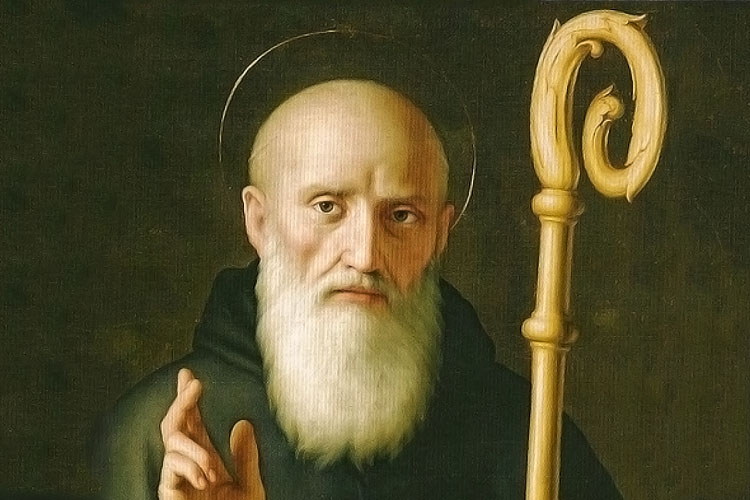11th July is the feast of Saint Benedict, who died around 547, and who is regarded as the ‘father of Western monks’ whose Rule is still followed by Benedictine communities around the world. Benedict was born in Nursia (now known as Norcia), in Italy, and he was educated in Rome but he left the city because of its decadence, and he went off into the forest to live as a hermit and pray. But he was soon joined by other like-minded men, and so monasteries were formed.

Benedictine monasteries were centres of classical learning and Christian culture, and Blessed John Henry Newman said that “St Benedict found the world, physical and social, in ruins, and his mission was to restore it… quietly, patiently, gradually… There was no one who contended or cried out, or drew attention to what was going on, but by degrees the woody swamp became a hermitage, a religious house, a farm, an abbey, a village, a seminary, a school of learning and a city.” In other words, St Benedict’s monasteries turned Europe into a Christian civilization. Hence St Benedict was declared to be one of the patron saints of Europe.
However, St Benedict and his Rule is not only relevant for monasteries or for consecrated religious.St Benedict’s aims and wisdom applies to every Christian, and also to every school community. St Benedict’s goal was to become a better disciple of Jesus Christ. The Benedictine way was to be interiorly conformed to Christ, and thus to transform and change the world; building a civilisation of love throughout Europe.
As St Benedict’s Rule says: “What can be sweeter to us… than this voice of the Lord inviting us? Behold, in His loving kindness the Lord shows us the way of life.” We must become what St Benedict called in his Rule, “a school for the service of the Lord.” We are called to love God, love learning and love neighbour.
St Benedict prioritised prayer, saying:
“Let nothing, therefore, be put before the Work of God”, meaning, nothing before prayer. When European civilisation was threatened and Rome falling into decay in the 6th-century, St Benedict fled the noise and busy-ness of Rome and went to pray. For St Benedict said: “prefer nothing whatever to Christ“.


